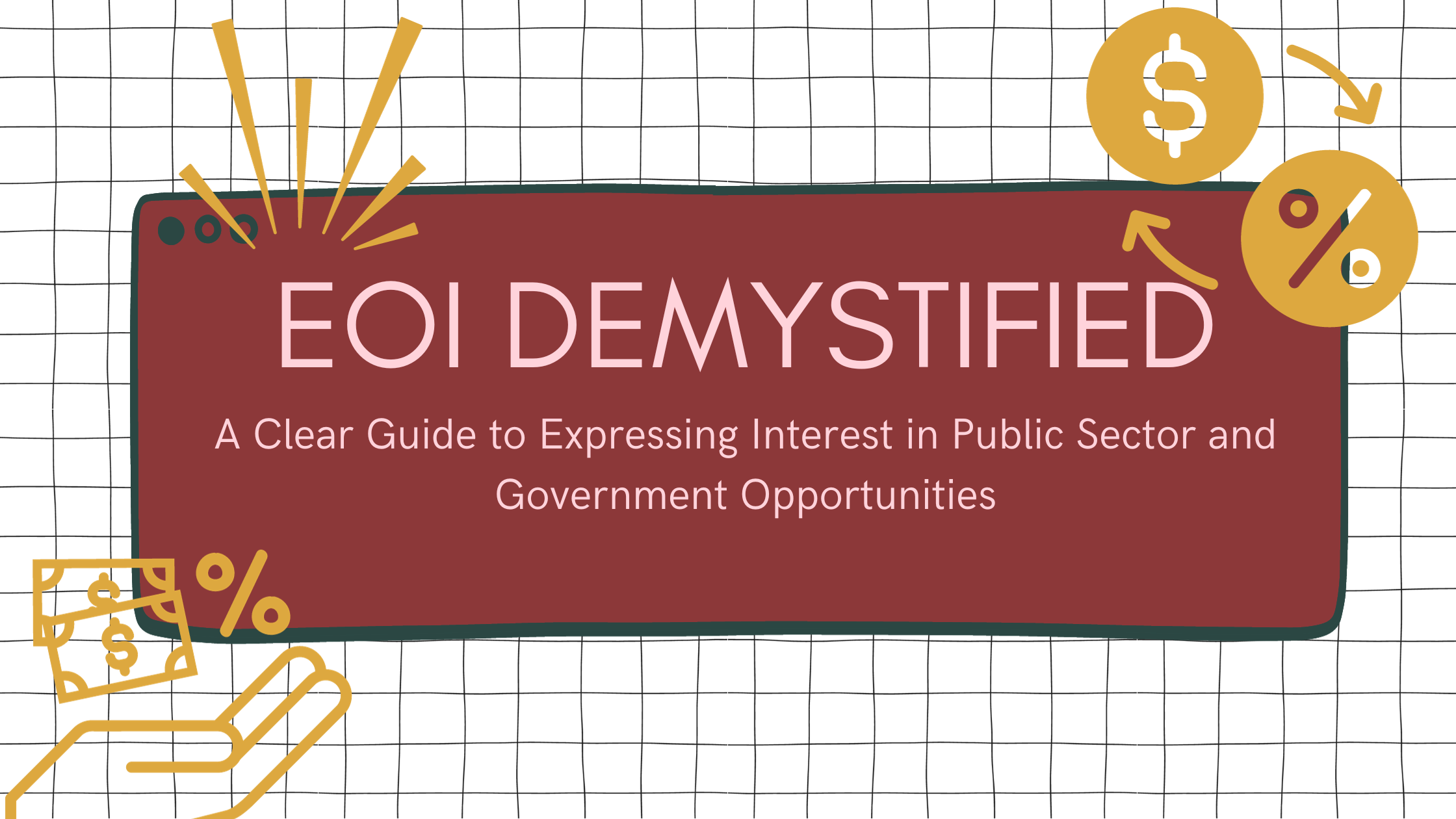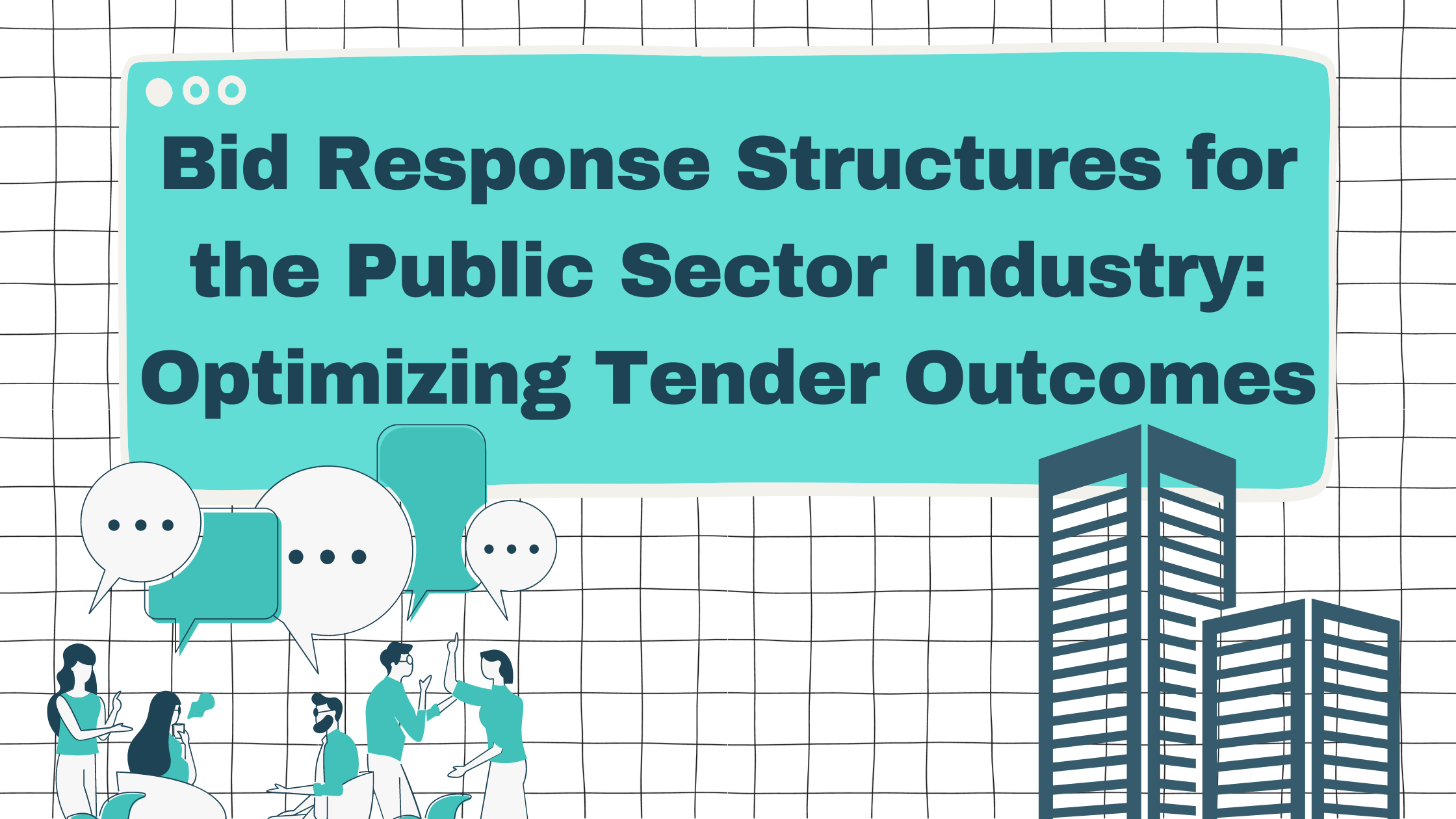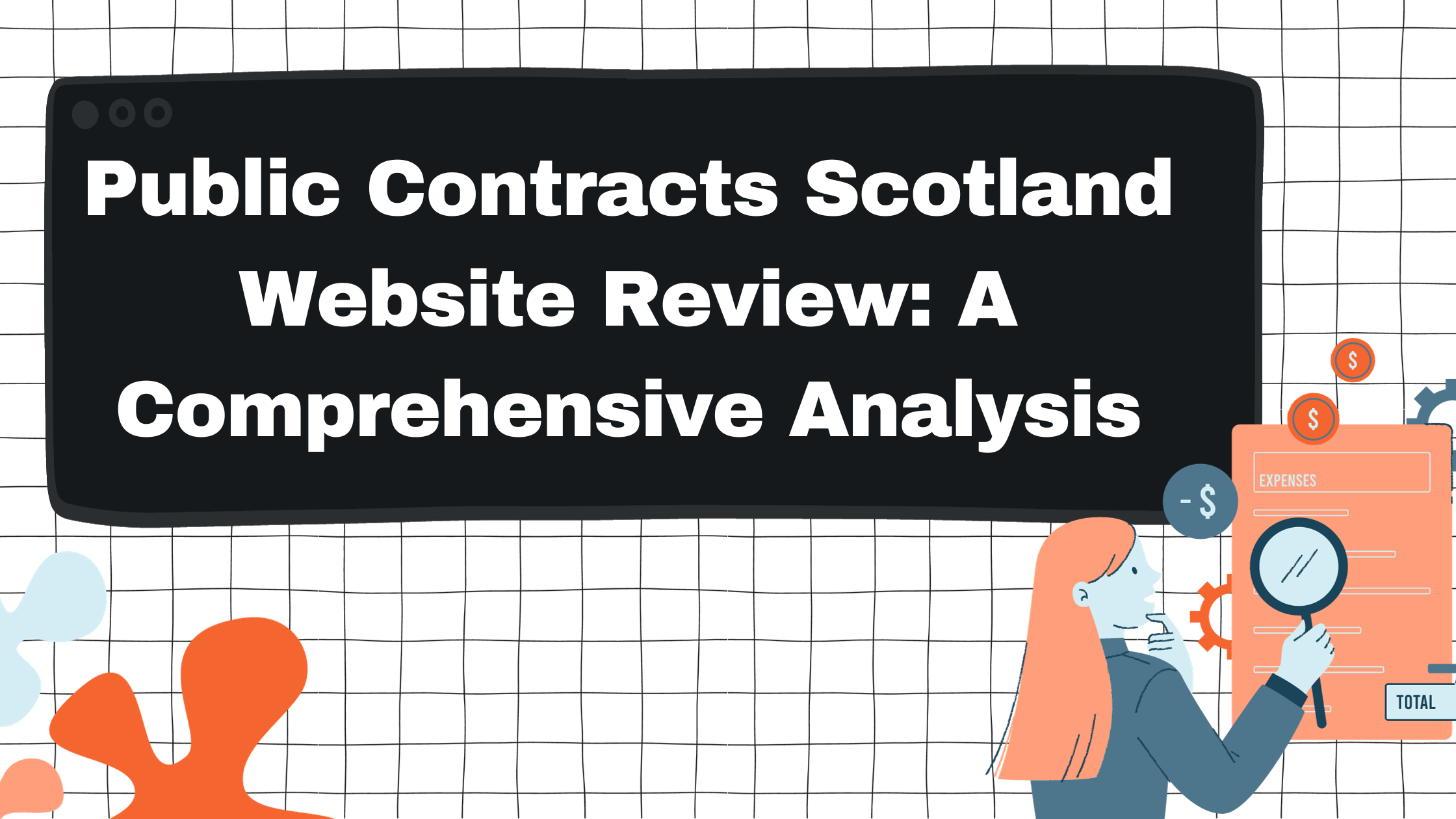Enhance Your Success with Expert Proposal Writing Services and RFP Writing Techniques

Need Help with Your Bid?
Get in touch by filling out the form and one of our advisors will be in contact.
Contact UsWhen it comes to supplier selection, making the right choice can drastically impact our business's success. Choosing the best suppliers ensures that we receive high-quality materials and services at the right price and time. This not only strengthens our supply chain but also builds trust and long-term relationships with our partners.

Identifying and evaluating potential suppliers requires a clear understanding of our goals and the criteria that matter most. We need to focus on reliability, competence, and the ability to meet our specific needs. Establishing set metrics can help us make informed decisions and reinforce consistency.
To perfect our supplier selection process, it's crucial to apply strategic tips and guidelines. By doing so, we can streamline our procurement strategies, making it easier to finalize contracts and manage supplier performance. Interested in learning more? Keep reading to uncover expert tips for an effective supplier selection process.
Key Takeaways
- Supplier selection impacts quality, cost, and timing.
- Clear evaluation criteria ensure informed decisions.
- Strategic tips streamline procurement and management.
Understanding the Supplier Selection Process
In selecting suppliers, it’s essential to align with business goals, develop clear criteria, and conduct thorough market research. These steps ensure that we establish strong and effective partnerships with suppliers.
Defining Business Needs and Goals
First, we must clearly define our business needs and goals. We identify what products or services are required, their specifications, and any special conditions. For instance, in manufacturing, knowing the exact materials and production standards is crucial.
We also consider our long-term objectives. Are we looking to scale operations or introduce new product lines? Understanding these needs helps us prioritize what's important and set a clear direction for our supplier selection.
Developing Criteria for Selection
Creating criteria for selection is a critical step. We develop a structured set of factors to evaluate potential suppliers. Important factors include:
- Quality: Does the supplier meet our quality standards?
- Cost: Are their prices competitive compared to market rates?
- Reliability: Can they deliver on time and consistently?
- Capacity: Do they have the production capacity to meet our demands?
We may use tools such as the RFP (Request for Proposal) or RFQ (Request for Quotation) in the RFX process to gather detailed information and offers from suppliers.
Conducting Market Research
Conducting market research helps us find and evaluate potential suppliers. We start by identifying a pool of candidates who meet our defined criteria. This can involve online research, industry events, or professional networks.
We assess their capabilities, past performance, and reputation in the industry. This step can include requesting samples, visiting their facilities, or seeking feedback from their current clients. Market research ensures we choose suppliers who align well with our business needs and goals.
Evaluating Potential Suppliers
When evaluating potential suppliers, it is crucial to consider various criteria such as their capabilities, financial stability, and quality assurance certifications. Understanding these aspects can help us make informed decisions and choose the right partners.
Assessment Techniques and Metrics
We start by assessing suppliers using specific techniques and metrics. Creating a supplier evaluation scorecard is essential. This tool includes various criteria such as cost, reliability, technology, and service quality. Metrics like delivery time, defect rates, and responsiveness to issues help measure a supplier's performance.
Engaging with business partners during this phase can provide insights into customized metrics relevant to our needs. We should also evaluate suppliers' ability to innovate and their alignment with our company’s goals. This thorough assessment helps us identify the most suitable suppliers.
Financial and Operational Stability Evaluation
Assessing the financial and operational stability of potential suppliers is crucial. We examine their financial health through credit checks, financial statements, and market reports. These elements indicate whether a supplier can sustain operations without disruptions.
We should look into their operational capabilities, such as production capacity, inventory management, and logistical systems. Ensuring that suppliers have robust systems in place can prevent operational hitches that might impact our business. Evaluating both financial stability and operational efficiency provides a comprehensive picture of a supplier’s ability to meet our demands.
Quality Assurance and Certification Review
Quality assurance and certifications are vital to supplier evaluation. We need to verify if suppliers have quality management systems like ISO 9001 in place. Such certifications demonstrate a commitment to maintaining high standards and continuous improvement.
We should review their quality control processes, looking at past performance data and audit results. Understanding how they handle non-conformities and their corrective actions can provide insights into their reliability. Additionally, it’s important to check if they comply with industry-specific certifications that are relevant to our products or services. Ensuring high quality and regulatory compliance safeguards our business interests.
By thoroughly evaluating potential suppliers in these three areas, we can make informed choices and build strong, dependable partnerships.
Finalizing Supplier Contracts
When finalizing supplier contracts, it's important to cover key aspects such as negotiation of terms, ensuring compliance and ethical standards, and risk mitigation. This helps secure a strong foundation for a successful partnership.
Negotiating Terms and Service Levels
Effective negotiation focuses on creating clear, balanced terms that benefit both parties. We need to detail service levels, pricing, timelines, and responsibilities. For example, setting performance metrics ensures suppliers meet our expectations.
Specifics, like delivery schedules and payment terms, get documented to avoid misunderstandings. A well-negotiated contract minimizes disputes by clearly defining how services are delivered and what each party commits to.
We should also include penalty clauses for non-performance and bonuses for exceeding expectations. This helps align the supplier's performance with our business goals.
Ensuring Compliance and Ethical Standards
Ensuring compliance means all contracted suppliers must adhere to legal requirements and ethical standards. This includes labor laws, environmental regulations, and industry-specific rules.
We need to verify that suppliers operate ethically and sustainably. This can be done by including clauses that require routine audits and compliance checks.
Clear guidelines on ethical practices, such as fair wages and safe working conditions, should form part of the contract. This commitment to ethical standards protects our reputation and ensures long-term collaboration.
Risk Mitigation and Collaboration Agreements
Identifying and mitigating risks is crucial. Contracts should specify risk-sharing arrangements and steps for handling potential issues like supply chain disruptions.
We need to set up collaboration agreements that detail how we will work together to address risks. For instance, having a plan for quick responses to supply delays can prevent major impacts on our operations.
Regular meetings and feedback loops should be established to monitor risk factors and foster ongoing collaboration. This proactive approach allows us to adjust and manage risks effectively.
Managing and Reviewing Supplier Performance
Managing supplier performance is crucial for maintaining quality and efficiency in the supply chain. This involves setting up a robust performance monitoring system, fostering continuous improvement through feedback, and managing strategic relationships with suppliers.
Implementing a Performance Monitoring System
We must implement a performance monitoring system to keep track of supplier performance. This involves setting clear metrics and key performance indicators (KPIs) that align with our business goals. Metrics can include delivery time, quality of goods, and compliance with contractual terms.
Regular assessments help us identify areas where suppliers excel and where they need improvement. We should frequently review performance data, using both automated tools and manual audits, to ensure that we receive the best value from our suppliers. By doing this, we can make data-driven decisions to optimize our supply chain operations.
Continuous Improvement and Feedback Loop
Continuous improvement is vital in supplier performance management. We need to establish a feedback loop where suppliers can receive constructive criticism and suggestions for improvement. Regular communication ensures that suppliers understand our expectations and can adapt their processes accordingly.
We should conduct performance reviews at scheduled intervals, fostering an environment of transparency and collaboration. These reviews help in identifying trends and tackling issues before they become significant problems. Through ongoing dialogue and actionable feedback, we can motivate suppliers to enhance their performance and maintain high-quality standards.
Strategic Supplier Relationship Management
Effective supplier relationship management is about more than just monitoring performance; it's about building long-term partnerships. We should engage strategically with key suppliers to align their goals with ours. This involves regular meetings, joint planning sessions, and early involvement in product development.
By developing a deeper relationship, we gain better insights into their capabilities and constraints, which helps in more accurate performance assessment and comparison. This collaboration can lead to innovative solutions and increased efficiency, benefiting both parties. Additionally, strong relationships with reputable suppliers enhance our supply chain's resilience and reliability.
Frequently Asked Questions
When selecting a supplier, it is important to consider several key criteria and follow a structured process. We must evaluate their performance, utilize effective selection methods, and consider specific factors for strategic sourcing.
What are the five essential criteria for selecting a supplier?
The five essential criteria include:
- Quality of Products or Services: Assess the reliability and quality of the supplier's offerings.
- Cost: Evaluate the pricing to ensure it meets budgeting requirements.
- Delivery Performance: Check the supplier's track record for timely deliveries.
- Financial Health: Confirm the supplier's financial stability to avoid disruptions.
- Reputation: Consider feedback and reviews from other clients.
What is the step-by-step process for selecting a supplier?
The step-by-step process involves:
- Identifying Needs: Understand the specific requirements for goods or services.
- Searching for Suppliers: Gather a list of potential suppliers.
- Requesting Proposals: Ask suppliers to submit proposals or bids.
- Evaluating Proposals: Use criteria like quality, cost, and delivery performance.
- Selecting a Supplier: Make a final decision based on evaluations and negotiations.
How do you evaluate the performance of potential suppliers?
To evaluate performance, we can:
- Conduct Site Visits: Inspect the supplier's facilities.
- Review Financial Statements: Ensure financial stability.
- Check References: Talk to other clients about their experiences.
- Assess Delivery Performance: Review past delivery records.
- Analyze Quality: Test product samples for consistency and reliability.
What methods can be employed to choose the most suitable supplier for a project?
Effective methods include:
- Weighted Scoring: Assign scores to criteria based on importance.
- Benchmarking: Compare suppliers against industry standards.
- Supplier Audits: Perform detailed audits of potential suppliers.
- Risk Assessment: Identify and evaluate potential risks and challenges.
- Pilot Testing: Conduct small-scale tests to gauge supplier performance.
What factors should be considered for supplier selection in strategic sourcing?
In strategic sourcing, we consider:
- Long-term Partnerships: Focus on creating sustainable relationships.
- Innovation Capability: Select suppliers who can innovate.
- Market Position: Evaluate the supplier’s position and influence in the market.
- Cost Management: Ensure strategic cost benefits.
- Compliance: Check adherence to regulatory and ethical standards.
What are the common stages involved in the supplier selection lifecycle?
The supplier selection lifecycle involves:
- Pre-Qualification: Identify and vet potential suppliers.
- Soliciting Bids: Request detailed proposals or bids.
- Evaluation: Assess proposals based on set criteria.
- Negotiation: Discuss terms, pricing, and contracts.
- Final Selection: Choose the supplier that best meets the requirements.
- Performance Review: Continuously monitor and review supplier performance.
Ready to start your search?
Get in touch by filling out the form to the right and one of our advisors will curate a personalised selection for you.
Get in touchBlogs. Guides. Helpful advice.

Mastering Proposal and RFP Writing for Government and Public Sector Opportunities

Proposal and RFP Writing Services: Enhancing Public Sector Tender Outcomes

.svg)